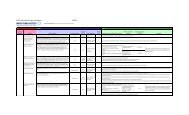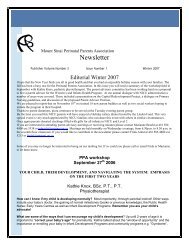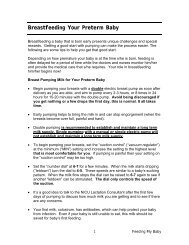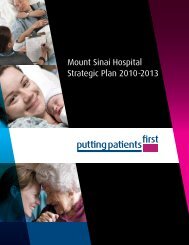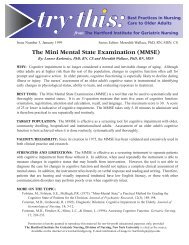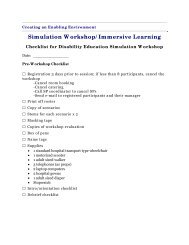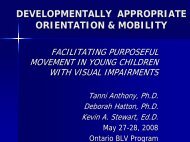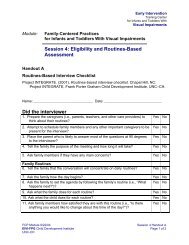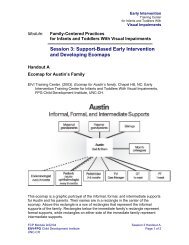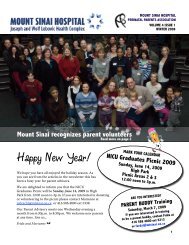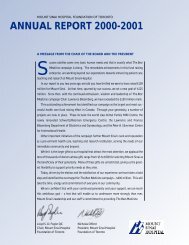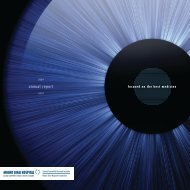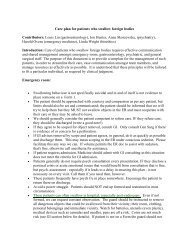Feeding and Nutrition for Your Baby - Mount Sinai Hospital
Feeding and Nutrition for Your Baby - Mount Sinai Hospital
Feeding and Nutrition for Your Baby - Mount Sinai Hospital
Create successful ePaper yourself
Turn your PDF publications into a flip-book with our unique Google optimized e-Paper software.
• Save any milk that you pump <strong>and</strong> give it to your baby’s nurse. A baby’s first<br />
feeding can be as little as 1ml (one fifth of a teaspoon!) every 12 hours.<br />
• Spend time touching <strong>and</strong> holding your baby as soon as you are able. This<br />
will help to increase your milk supply as well as being a positive experience<br />
<strong>for</strong> you <strong>and</strong> your baby. It’s a good idea to breast pump after you spend time<br />
with your baby.<br />
• Using your pump properly will help to ensure a good milk supply. Review<br />
proper pump settings with the lactation consultant or your nurse. Refer to the<br />
page titled “. ‘Tips <strong>for</strong> pumping <strong>and</strong> increasing your milk supply.’<br />
• Frequent pumping may be causing your nipples to become tender. Express<br />
some of your breast milk on to your nipples after pumping <strong>and</strong> allow to air dry<br />
<strong>for</strong> several minutes. Be sure the suction control is on minimum, <strong>and</strong> only<br />
increase the pressure if it is com<strong>for</strong>table.<br />
• Try to stick to your pumping schedule of every 2-3 hours but be flexible with<br />
your pumping times especially during the day. The most important thing is<br />
that you get 7-8 pumpings in 24 hours. Pump at night <strong>and</strong> be sure to go no<br />
longer than 4 hours between pumping sessions at night.<br />
• When timing pumping sessions, it is similar to breastfeeding sessions,<br />
there<strong>for</strong>e time your pumping session from the beginning of one session to the<br />
beginning of the next session.<br />
• Pumping sessions should last 15-20 minutes when you are double pumping.<br />
• The team in the NICU/Level II Nursery (Lactation Consultant, nurse, dietician,<br />
<strong>and</strong> doctor) will help you to develop a feeding plan (kangaroo care, nonnutritive<br />
sucking, <strong>and</strong> practice breastfeeding/breastfeeding) <strong>for</strong> your baby.<br />
Which breast pump is best <strong>for</strong> me?<br />
There are a variety of breast pumps available on the market today, so it is<br />
important to think carefully be<strong>for</strong>e you rent or buy a breast pump, as they are<br />
different. A good pump can make all the difference. Because your baby was born<br />
early, long-term frequent pumping is necessary to maintain your milk supply until<br />
your baby is ready to feed totally from the breast.<br />
We suggest that you rent a hospital grade double electric breast pump. For more<br />
in<strong>for</strong>mation, please contact the Breastfeeding Centre at 416-586-4543, press 2 or<br />
NICU/Level 2 Lactation Consultant at 416-586-4800, ext. 6373.<br />
12 <strong>Feeding</strong> My <strong>Baby</strong>



